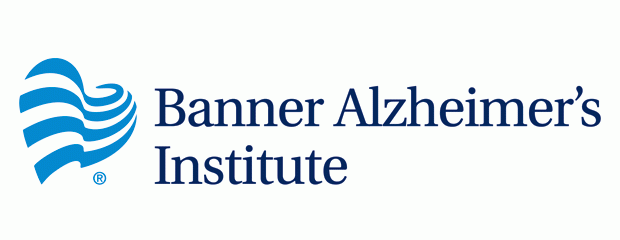
The new funding will support three aspects of the API APOE4 trial that otherwise would not be possible: (1) brain PET imaging at the start of the trial and two-year follow-up in 125 participants each year, (2) a sub-study to evaluate two remote genetic counseling approaches, and (3) expansion of the Alzheimer’s Prevention Registry for the APOE4 trial.
“The goal is to accelerate the global effort to eliminate Alzheimer’s disease,” said Maria Carrillo, Ph.D., Alzheimer’s Association Chief Science Officer. “Through efforts such as API, the Alzheimer’s Association envisions a time when we will have effective treatments to slow or stop Alzheimer’s in its tracks; plus preventive strategies and gold-standard care for all people affected by Alzheimer’s.”
The Alzheimer’s Association led the effort to bring the three funding organizations together. The award to API includes a $5 million lead gift from the GHR Foundation, a private family foundation.
API is led by BAI’s executive director, Eric Reiman, M.D., its director, Pierre Tariot, M.D., and one of its principal scientists, Jessica Langbaum, Ph.D.
“We are extremely grateful to these three organizations for their extraordinary support,” said Dr. Reiman. “These funds will not only help make it possible to evaluate two promising Alzheimer’s prevention therapies, but to do so in a way that will help the field find treatments that work as soon as possible.”
API was established to rapidly evaluate potential new treatments in people prior to developing clinical symptoms of Alzheimer’s who, based on their age and genetic background, are at highest risk of developing symptoms of the disease, including the API APOE4 trial and the Autosomal Dominant Alzheimer’s Disease Trial. That study is evaluating an investigational anti-amyloid therapy in 300 cognitively normal members of an extended family in Colombia, South America that includes carriers of a rare genetic mutation causing them to develop Alzheimer’s by about age 45. API is committed to sharing trial data and biological samples with the research community to help find better ways to test prevention therapies in the future, and to clarifying the role of APOE genetic testing and disclosure.
The API APOE4 trial is focused on how two investigational anti-amyloid therapies may prevent or delay the development of Alzheimer’s symptoms in a population known to be at high risk for the disease because of their age and genetic status. Specifically, participants in the trial must be age 60-75 and carry two copies of the APOE-e4 gene that greatly increases their risk for developing Alzheimer’s.
The trial will test two different potential therapies to see if one or both can prevent the development of memory and thinking symptoms of Alzheimer’s. The first treatment is an active immunotherapy aimed at triggering the body’s immune system to produce antibodies that block different forms of the amyloid protein, which many researchers believe plays a critical role in the development of Alzheimer’s. The second drug is designed to prevent the production of amyloid protein that accumulates in the brain to form plaques, one of the hallmarks of Alzheimer’s. The trial will involve about 1,300 research participants. Pending regulatory approval, the study is planned to begin in the late 2015/early 2016 in sites in North America and Europe, and last five years.
The new funding will support three aspects of the API APOE4 trial:
- Tau PET imaging, amyloid PET imaging, and FDG-PET imaging at baseline and two-year follow-up in 125 participants each year to determine if the two treatments change tau PET measurements and are associated with a therapeutic benefit. Tau protein helps maintain normal cell structure. In people with Alzheimer’s, tau in the brain becomes abnormal and forms tangles, one of the characteristic features of Alzheimer’s.
- The expansion of the Alzheimer’s Prevention Registry, which provides information about Alzheimer’s prevention research and is intended to support enrollment in the APOE4 trial and other prevention trials.
- Evaluation of two remote genetic counseling approaches using telephone versus real-time videoconference counseling. This will include measuring the psychological, behavioral and cognitive effects of APOE genotype disclosure in people who underwent both types of genetic counseling.
“Because participation in the API APOE4 trial requires knowledge of one’s genetic status, we need to determine how to best communicate the genetic risk for developing Alzheimer’s as well as how to counsel individuals on what this risk means,” said Dr. Tariot.
In September 2013, the U.S. National Institutes of Health (NIH) announced an initial commitment of $33.2 million in partial support for the API APOE4 trial. In July 2014, BAI announced a partnership with Novartis, which is providing its two investigational treatments and financial support. In its NIH grant applications, BAI committed to obtaining $15 million in philanthropic and in kind contributions. To support the API APOE4 trial, $5 million has been obtained through donations to the Banner Alzheimer’s Foundation. The $10 million award from the Alzheimer’s Association, GHR Foundation and Fidelity Biosciences Research Initiative completes Banner’s commitment for this trial.
Provided by Alzheimer’s Association
Learn More:
API APOE4 ALZHEIMER’S ASSOCIATION FUNDING ANNOUNCEMENT FREQUENTLY ASKED QUESTIONS
